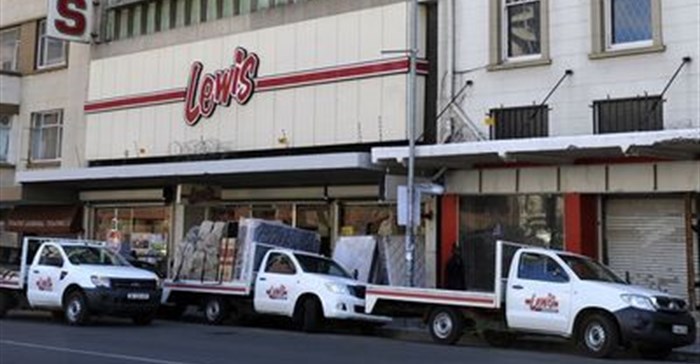
Top stories

Marketing & MediaPick n Pay and Gorilla win big at the 2025 MMA Smarties Awards
Jordan Wallace, Gorilla 2 days





More news



Marketing & Media
Capitec’s new jingle makes banking fees as easy as 1, 2, 3, 6, 10
















Rocked by consumer credit insurance (CCI) mis-selling to customers, Lewis's share price has plunged over 40% since June. It has left the furniture retailer on a priced-for-calamity 6 p:e and a 9% dividend yield.
The targets of the CCI misselling were pensioners and self-employed people. It was a serious error of which Lewis was unaware until notification by the national credit regulator (NCR) of three mis-selling cases.
"It's bizarre that Lewis did not know of the mis-selling," says Christopher Gilmour of Absa Wealth Management "It prides itself on knowing its customers better than any other retailer."
Lewis took action following notification by the NCR, launching an internal probe. It found that in the eight years since 2007, 15% of customers in the pensioner and self-employed categories had been mis-sold CCI. "It is against company policy," says Lewis CE Johan Enslin He attributes the mis-selling to "human error".
Enslin plays down the extent of the mis-selling. "It amounted to R6m in annual premiums, under 1% of total premium income over period," he says.
To its credit, Lewis acted swiftly to reimburse aggrieved customers, with R67,1m in premium and interest refunds. "We have compensated 30% of those affected. They are current customers," says Enslin. "We are contacting the other 70%."
He believes no damage has been done to the Lewis brand. "Feedback is generally positive," he says. "It's because we acted proactively."
The assault on Lewis's reputation is not over, though. The NCR has referred the company and its subsidiary Monarch Insurance to the national credit tribunal. "No pre-hearing date has been set but we are opposing the referral," says Enslin.
Chances of successful opposition seem slim at a time when national treasury is on the warpath against consumer abuse by credit retailers. Treasury has abundant ammunition, not least when it comes to CCI.
CCI covering the likes of work loss, death and disability is very lucrative. Lewis rakes in about R900m in annual premiums, an amount equal to almost 40% of merchandise sales of about R2,5bn.
More important are the low claims ratios (claims paid as a percent of premiums), which in 2014 Enslin indicated were 20%25% for Lewis. This compares with short-term insurer Santam's most recent 61% claims ratio and the life insurance industry's average claims ratio of about 45%.
Piled on top of CCI are interest (22%/year) and a plethora of other costs such as initiation fees, extended warranties, delivery and monthly fees. They earn Lewis about R2,2bn annually.
36One Asset Management analyst Jean Pierre Verster does not believe Lewis will have to abandon its business model. But he sees changes coming.
"They can keep on selling on credit and adding related costs," says Verster. "It is the quantum of those added costs that calls into question the sustainability of the model as it now exists."
Independent analyst Syd Vianello agrees. "There will always be demand for credit, but its cost must fall," he says.
Lewis has not found itself abandoned by big-name investors. Among recent buyers of its shares are Allan Gray, Deutsche Bank and Goldman Sachs
Whether retail investors should rush to follow them is debatable. In addition to the regulatory uncertainty facing Lewis, its earnings have been falling steadily since 2014 in the face of rising bad debts. There appears little chance of respite.
Lewis's heavy rural exposure leaves it vulnerable to problems besetting the mining industry. "We have an 8%-10% direct exposure to mining and a big indirect exposure," says Enslin. "The drought is also bad news for agriculture."
If Lewis does have one big attraction it is its dividend, which Verster and Vianello do not see as being at risk of being slashed. A 9% yield is alluring, but investors must ask: is it worth the risk in a highly risk-averse market?

For more than two decades, I-Net Bridge has been one of South Africa’s preferred electronic providers of innovative solutions, data of the highest calibre, reliable platforms and excellent supporting systems. Our products include workstations, web applications and data feeds packaged with in-depth news and powerful analytical tools empowering clients to make meaningful decisions.
We pride ourselves on our wide variety of in-house skills, encompassing multiple platforms and applications. These skills enable us to not only function as a first class facility, but also design, implement and support all our client needs at a level that confirms I-Net Bridge a leader in its field.
Go to: http://www.inet.co.za